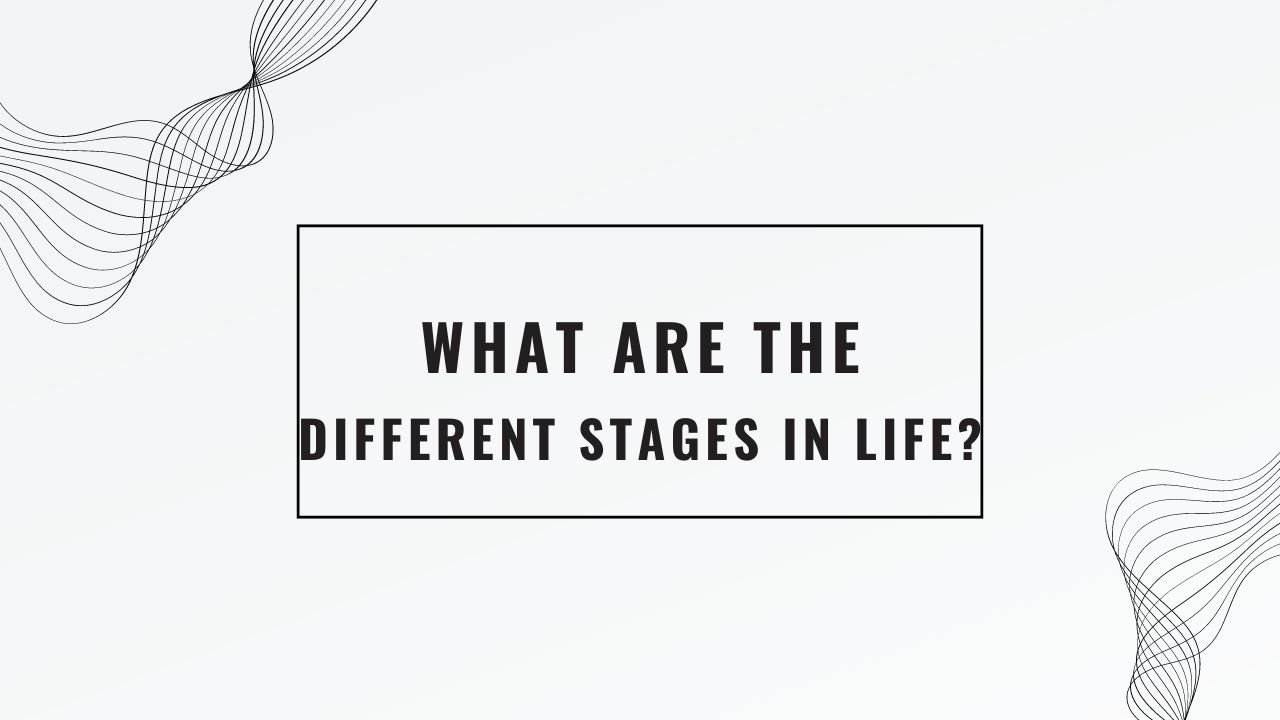Life is like a story, and each part of it is called a “stage.” There are different stages in life, and each one has its own special things to learn and do. In this article, we’ll look at these stages, explain what happens in each one, and how It fits into them. We’ll keep the language simple so that even a 5th grader can understand.
What Happens in the Early Childhood Stage?
The early childhood stage starts from when a baby is born until about 5 years old. This stage is super important because it’s when a person learns basic things like talking, walking, and understanding the world around them. During this time, kids often play a lot, and that’s how they learn. Their brains grow fast, and they start to form their personalities.
In early childhood, It is seen in how kids begin to understand their feelings and the feelings of others. They learn to express happiness, sadness, and other emotions. This stage sets the foundation for everything else in life. Parents and caregivers play a big role in guiding children through this stage, making sure they feel loved and safe.
What Is the Importance of the School-Age Stage?
The school-age stage happens between 6 and 12 years old. This is when kids go to school and learn about different subjects like math, reading, and science. It’s also when they start to make friends and learn how to work with others. They begin to understand right from wrong and start developing more complex thinking.
During the school-age stage, It is seen in how kids handle challenges at school and with their friends. They learn to solve problems, make decisions, and think about the consequences of their actions. This stage helps kids become more independent and prepares them for the next stage in life. It’s also when kids start to discover their interests, like sports, art, or music.
What Changes Occur During the Teenage Stage?
The teenage stage, also called adolescence, happens between 13 and 19 years old. This stage is full of changes, both in the body and the mind. Teenagers start to develop their own identity, figuring out who they are and what they believe in. They also begin to think more deeply about the world and their place in it.
It is important in the teenage stage because it helps teenagers make good choices as they navigate this time of change. They learn to set goals, deal with peer pressure, and manage their time. This stage is when teenagers start to think about their future, like what job they might want or what kind of life they want to live. It’s a time of growth and self-discovery.
What Happens During the Young Adult Stage?
The young adult stage happens from about 20 to 40 years old. This is when people often start working, build their careers, and may start a family. They also form deeper relationships with others, whether it’s friends, a partner, or colleagues. This stage is about taking on more responsibilities and making important life decisions.
It plays a role in helping young adults balance their work, relationships, and personal goals. They learn to manage their finances, make decisions about their careers, and possibly raise children. It’s a time of building and achieving, where the choices made can have long-term effects on their future. The young adult stage is when people start to solidify who they are as individuals.
What Are the Key Features of the Middle-Aged Stage?
The middle-aged stage is from about 40 to 65 years old. During this time, people often reflect on what they’ve achieved and think about what they still want to do. Some may experience a “mid-life crisis,” where they question their life choices and make changes to find more meaning.
It is seen in how middle-aged adults handle changes like aging, retirement planning, and maintaining relationships. They might focus more on their health, spending time with family, or pursuing hobbies. This stage is about finding a balance between work and personal life, and often, people start thinking more about their legacy and what they want to leave behind for the next generation.
What Is the Importance of the Senior Stage?
The senior stage begins around 65 years old and lasts through the rest of life. During this stage, people often retire from work and have more time to enjoy hobbies, travel, and spend time with loved ones. It’s also a time when people might face health challenges and need to take care of their physical and mental well-being.
It is crucial in helping seniors stay active, healthy, and engaged with life. They might volunteer, mentor younger people, or focus on their hobbies. It’s a time to reflect on life’s experiences and share wisdom with others. The senior stage is about enjoying the fruits of one’s labor and finding peace and contentment.
How Do Different Stages of Life Affect Our Well-Being?
Each stage of life brings its own challenges and rewards, and how we handle them can affect our overall well-being. It’s important to recognize that every stage is an opportunity for growth, learning. Whether it’s learning new skills in childhood, building a career in young adulthood, or finding fulfillment in later years, each stage has something valuable to offer.
Taking care of our physical, mental, and emotional health is important at every stage. By staying connected with others, being active, and pursuing our passions, we can make the most of each stage of life. Understanding the different stages can help us navigate life more easily and find happiness along the way.
What Are the Benefits of Understanding Life Stages?
Understanding life stages can help us appreciate where we are in life and what we can look forward to. It can also help us support others, whether they are children, teenagers, or seniors. By recognizing the challenges and opportunities of each stage, we can make better decisions and live more fulfilling lives.
It is important in every stage because it helps us make the most of our time and experiences. Whether we are learning, working, or enjoying retirement, It can guide us in making choices that lead to a happy and meaningful life. Knowing about life stages can also help us plan for the future, setting goals and making preparations that align with our values and desires.
How Can We Make the Most of Each Life Stage?
Making the most of each life stage involves embracing the opportunities and challenges that come with it. By staying positive, being open to learning, and taking care of ourselves and others, we can find joy and satisfaction at every stage of life. It’s also important to remember that it’s never too late to make changes or try something new.
It can help us stay focused on what’s important, whether it’s building relationships, pursuing passions, or simply enjoying life. Each stage has its own unique experiences, and by making the most of them, we can create a life that is rich and fulfilling. Whether we are just starting out in life or looking back on a long journey, each stage offers something special.
Table: Benefits of Understanding Life Stages
| Life Stage | Key Benefits |
| Early Childhood | Builds a strong foundation for learning and emotional development. |
| School-Age | Encourages problem-solving skills and social development. |
| Teenage | Helps in identity formation and decision-making. |
| Young Adult | Supports career building, relationship forming, and financial independence. |
| Middle-Aged | Provides opportunities for reflection, balance, and legacy building. |
| Senior | Focuses on enjoying life, sharing wisdom, and staying healthy. |
Understanding and making the most of each stage can lead to a happy, successful, and fulfilling life. It plays a role in guiding us through the ups and downs, helping us learn and grow at every step.



